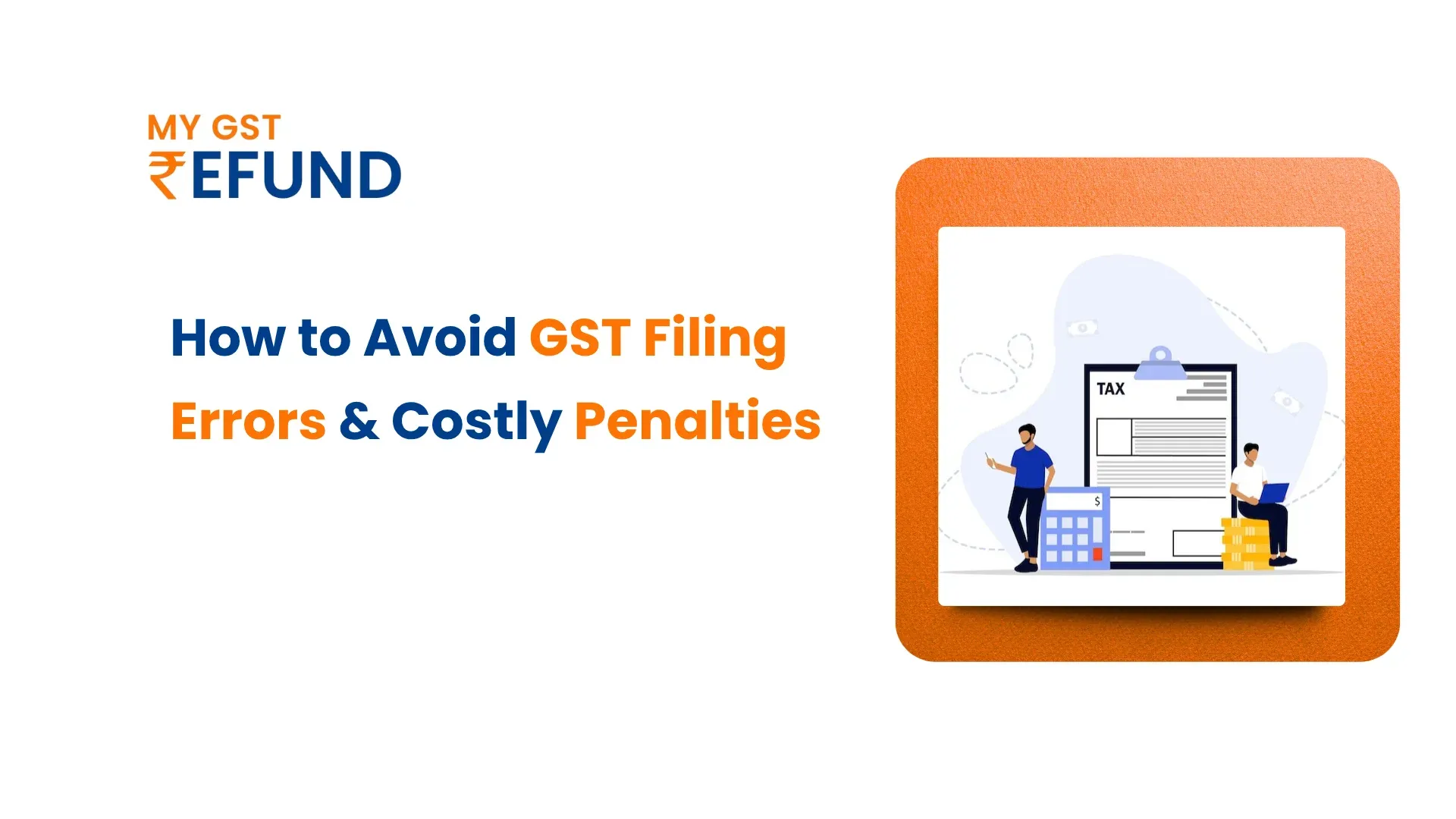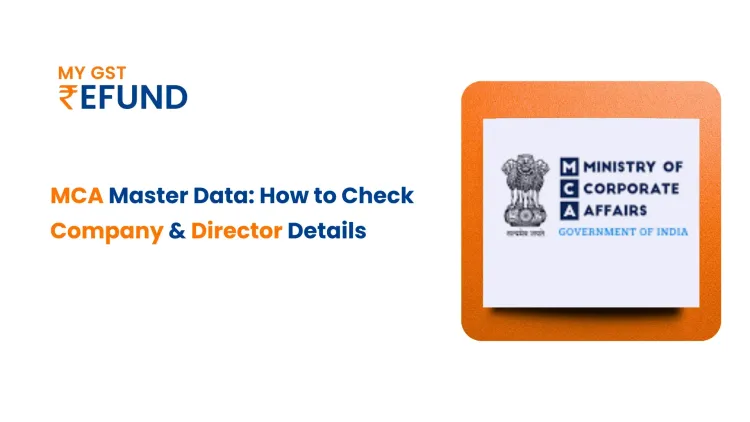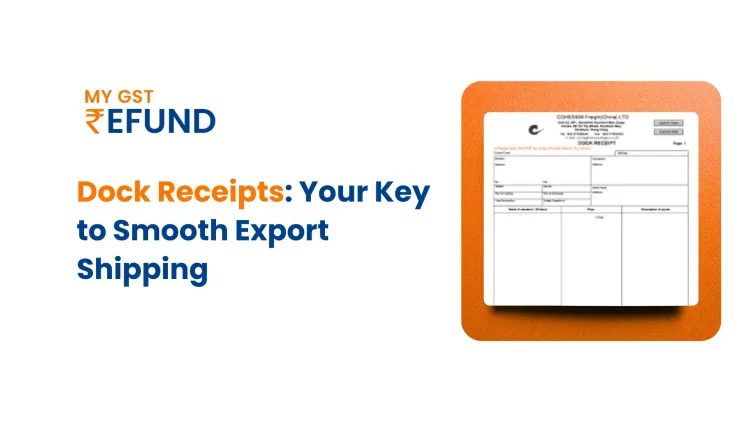How to Avoid GST Filing Errors and Costly Penalties
Goods and Services Tax (GST) is a fundamental part of India's indirect tax structure, but the complexity of GST can be a cause for concern for companies. GST filing errors are not Clerical errors; they can have costly implications, including GST fines and the release of formal GST Notices.
To protect the business and achieve enhanced compliance, it is important to take a proactive, effective, and systemic approach to prevent such mistakes. This detailed guide will lead us through the mistakes and tips to the ability to file accurately, on time, and without any stress.
Receiving Notices for your business and not sure why?
Use our CFO Dashboard to track issues in real time, prevent future notices, and avoid costly penalties.
The High Cost of Common GST Filing Mistakes
Even a small mistake in filing GST can trigger an audit, and that can further trigger heavy penalties. Awareness of these most common errors is an important step in avoiding them.
1. Delayed returns filing: This may very well be the most often occurring but very preventable mistake. Overlooking the due date for filing GSTR-1, GSTR-3B, or other returns instantly attracts late charges.
2. Wrong Data Entry: Errors in manual entry of invoice information, GSTINs, HSN/SAC codes, or tax values may result in mismatches or gross discrepancies between your returns and those of suppliers and customers.
3. Return Mismatches: Differences between GSTR-1 and GSTR-3B are the cause of concern for the tax authorities. For instance, if your GSTIR (sales details) does not tally with the declared tax liability in the GSTR-3B (tax summary), it may lead to a GST Notice, which not only gives a negative impression to the business but also complicates compliance.
4. Availing ineligible input tax credit (ITC): Companies usually availed ITC on items or services that are specifically "blocked" under section 17(5) of the GST Act. Such items include food and drinks, membership charges of certain clubs, and some other items. Availing ineligible ITC is a serious offense punishable with demand for tax, interest, and penalty
5. Inappropriate application of Tax Rate: Using the incorrect GST rate for a product or service or classifying a supply as "nil-rated" rather than "zero-rated" will result in short payment of tax and, therefore, penalties.
6. Failure to file a Nil Return: Many businesses with no transactions in a given period mistakenly believe they don't need to file a return. However, a Nil return is mandatory, and failing to file it on time can result in late fees.
Proactive strategies to prevent errors
1. Implementation of a robust reconciliation process: Reconciliation is the bedrock of accurate GST filing. Regularly compare your sales and purchase data with the GSTR-2A and GSTR-2 B auto-populated statements.
• Identifying any invoices from your suppliers that have not been uploaded, allowing you to follow up and claim your eligible ITC
• Spot any invoices that your customers have not reflected in their returns, which can lead to your GSTIN getting flagged.
• Rectify discrepancies between your gstr-1 and gstr-3b before submission.
2. Utilise GST-compliant software:
Utilizing a robust GST-compliant accounting and filing software is the most efficient means of avoiding manual errors and making the process easier. Effective software can:
- Automate tax calculations, reducing the risk of errors.
- Validate GSTINs of your buyers and suppliers
- Create invoices and e-invoices that are compliant with GST regulations
- Give automated reminders for filing deadlines.
- Help you reconcile your data with GST -2A and GSTR-2B
3. To stay updated and train, and upskill the team:
The laws and regulations around GST are constantly changing. Periodically, changes are communicated, and non-compliance may result from ignorance. It is essential to:
• Spend money training your staff or the individual handling GST compliance.
• Become aware of specific GST Rates, HSN/SAC Codes, and industry-specific regulations applicable to your field.
Responding to a GST Notice:
Despite your best efforts, you may still receive a GST Notice. It is a formal communication from the tax authorities, and ignoring it is not an option.
1. Understanding the Notice :
The first step is to read the notice carefully and understand the reason for its issuance. Common reasons include:
Discrepancy in Return: A mismatch between your GSTR-1 and GSTR-3B.
- Mismatch in ITC
- Late filing
- Tax liability difference
2. Gathering supporting documents :
Once you understand the reason, gather all the received documents to substantiate your position. This may include:
- Copies of your GST Returns (GSTR-1, GSTR-3B)
- Tax payment receipts
- Purchase and sales invoices
- Bank statements
- Other financial records that clarify the situation
3. Prepare a professional and clear response:
Your GST Notice response has to be factual, succinct, and sound in law. It has to deal with every issue in the notice and give clear reasons, and be backed by the documents you've collected. The response has to be lodged within the given time frame so that further action will not be taken.
4. Expert professional help:
If the notice involves complex legal or financial matters, it is highly advisable to consult a tax professional.
For professional advice on any issues in GST filing and mistakes, you can contact MYGST REFUND. MYGST REFUND not only provides you with professional advice, but also saves your pocket-pinching fines and also saves your business from being marked.
Conclusion
Avoidance of GST filing errors is an ongoing process that includes a mix of careful record keeping, intelligent technology usage, and a dedication to staying current by embracing best practices such as routine reconciliation, utilizing GST software, and educating your staff and your enthusiasts to minimize the chances of mistakes considerably. And in case you do get a GST Notice, an instant and prepared reply will avoid injuries from snowballing into huge financial costs. Compliance with GST is not only a legal requirement; it's a smart action that will keep your company's financial health and reputation intact.
Related Posts







